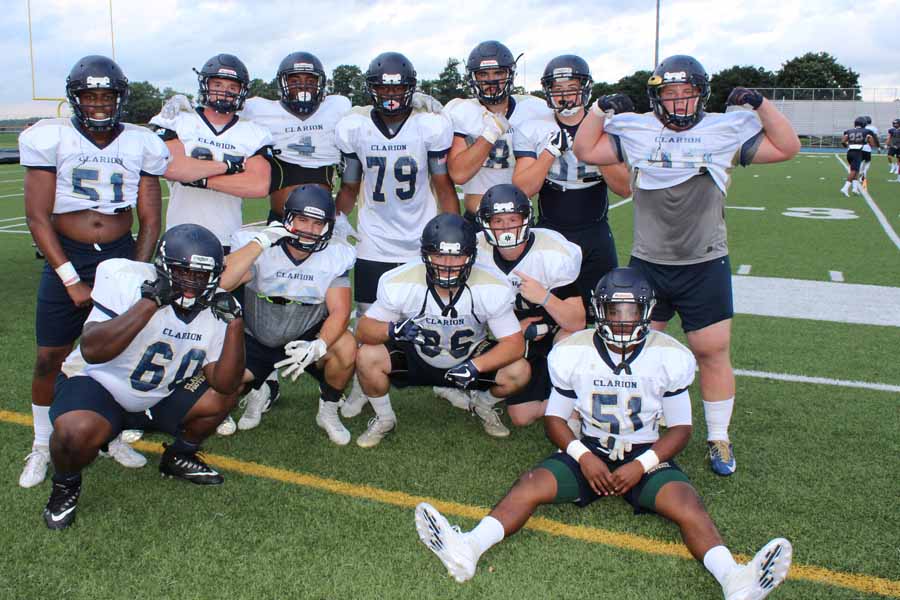Important Terms to Know From the NCAA Guide for the College-Bound Student Athlete…
Contact: A contact happens any time a college coach says more than hello during a face-to-face meeting with you or your parents off the college’s campus.
Contact period: During a contact period, a college coach may have face-to-face contact with you or your parents, watch you compete or visit your high school and write or telephone you or your parents.
Dead period: A college coach may not have any face-to-face contact with you or your parents on or off the college campus at any time during a dead period. The coach may write and call you or your parents during this time.
Evaluation: An evaluation happens when a college coach observes you practicing or competing.
Evaluation period: During an evaluation period, a college coach may watch you compete, visit your high school and write or telephone you or your parents. However, a college coach may not have face-to-face contact with you or your parents off the college’s campus during an evaluation period.
Financial aid: (scholarship) Any money you receive from a college or another source, such as outside loans or grants. Financial aid may be based on athletics ability, financial need or academic achievement.
Five-year clock: If you play at a Division I school, you have five-calendar years in which to play four seasons of competition. Your five-year clock starts when you enroll as a full-time student at any college. Thereafter, your clock continues, even if you spend an academic year in residence as a result of transferring, decide to redshirt, if you do not attend school or even if you go part time during your college career.
Official visit: During an official visit, the college can pay for transportation to and from the college for you, lodging and meals (Division I allows for up to three meals per day) for you and your parents or guardians, as well as reasonable entertainment expenses including three tickets to a Division I home sports event or five tickets to a Division II home sports event. Before a college may invite you on an official visit, you will have to provide the college with a copy of your high school transcript and ACT, SAT or PLAN score (test scores are required for Division I only) and register with the NCAA Eligibility Center.
Quiet period: During this time, a college coach may not have any in-person contact with you or your parents off the college’s campus. The coach may not watch you play or visit your high school during this period. You and your parents may visit a college campus during this time. A coach may write or call you or your parents during this time.
Recruited: If a college coach calls you more than once, contacts you off campus, pays your expenses to visit the campus, or in Divisions I and II, issues you a National Letter of Intent or a written offer of financial aid, you are considered to be recruited.
Recruiting calendar: NCAA member schools limit recruiting to certain periods during the year. Recruiting calendars promote the well-being of college-bound student-athletes and ensure fairness among schools by defining certain periods during the year in which recruiting may or may not occur in a particular sport.
Season of competition: Generally, NCAA rules say that any competition in a season — regardless of the amount of time — counts as having played a season in that sport. If you play any time during a season, regardless of how long you played, it counts as having played for an entire season in that sport. Your season of competition starts when you spend one second in competition on the field, court, gym or track.
Ten-semester/15-quarter clock: If you play at a Division II or III school, you have the first 10 semesters or 15 quarters in which you are enrolled as a full-time student to complete your four seasons of participation. You use a semester or quarter any time you attend class as a full-time student or are enrolled part time and compete for the school. You do not use a term if you only attend part time with no competition or are not enrolled for a term.
Two-year college: An school where students can earn an Associate of Arts (AA) degree, an Associate of Science (AS) degree or an Associate of Applied Science degree within two years. Some people call these schools community colleges or junior colleges.
Unofficial visit: Any visit by you and your parents to a college campus paid for by you or your parents. The only expense you may receive from the college is three complimentary admissions to a Division I home athletics contest or five complimentary admissions to a Division II home athletics contest. You may make as many unofficial visits as you like and may take those visits at any time. The only time you cannot talk with a coach during an unofficial visit is during a dead period.
Verbal commitment: A verbal commitment happens when you verbally agree to play sports for a college before you sign or are eligible to sign a National Letter of Intent. The commitment is not binding on you or the school and can be made at any time.
Walk-on: Someone who is not typically recruited by a school to participate in sports and does not receive a scholarship from the school, but who becomes a member of one of the school’s athletics teams.




